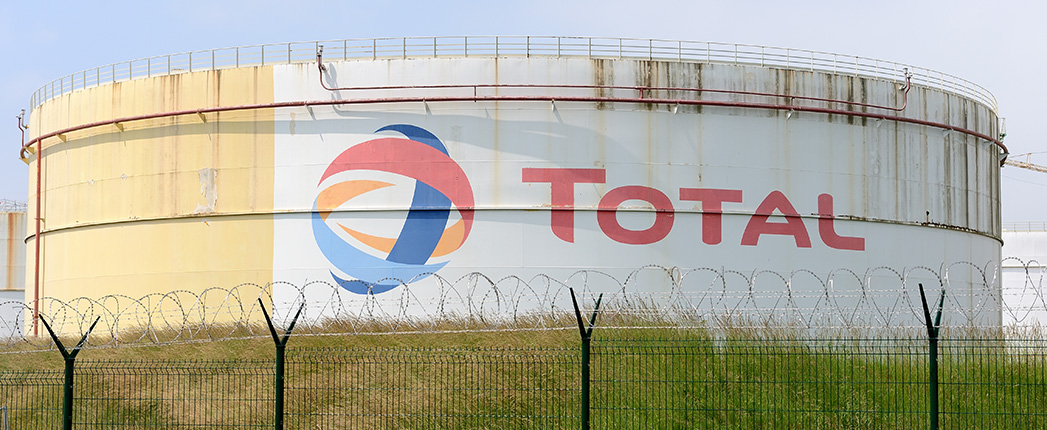
Total has decided to permanently close a base oil plant at its refinery in Gonfreville, France, as part of a project to overhaul the Normandy complex. The plant has not produced base oil since a fire damaged the refinery’s crude unit in December 2019.
“This project will allow the platform to strengthen its fundamentals and improve its industrial performance while discontinuing the production of base oils in response to a structural decline in demand,” Total said in a March 30 news release. “All staff affected by the discontinuation of the production of base oils will be assigned to new positions that will strengthen the platform’s operations in the areas of safety, industrial processes and project management.”
The Gonfreville plant in northern France has capacity to make approximately 250,000 metric tons per year of API Group I oils and 39,000 t/y of Group III, according to the Lubes’n’Greases 2020 Guide to Global Base Oil Refining.
The plant was once one of the largest base oil sites in Western Europe, with capacity of more than 500,000 t/y, but its output diminished in recent years. In 2015 the refinery halved the size of the Group I production unit to its current capacity. At that point the unit continued making heavy neutral oils and bright stock, said industry consultant Stephen B. Ames, while Total purchased Group II stocks produced at Chevron’s plant in Pascagoula, Louisiana, United States, via Chevron’s terminal in Antwerp.
“The remaining train was the heavy neutral and bright stock operation and is the one being permanently closed,” Ames told Lube Report. “It had depended on the crude unit that was damaged in a 2019 fire and has been down since – the repair to the crude unit having been delayed by COVID-19.”
By deadline, Total did not respond to follow up questions, including about the status of the plant’s Group III base oil production capacity. Ames said that Total has not made its own Group III for many years. “It had used hydrowax that they then put through the solvent dewaxer in the Group I base oil plant,” he explained.
A global shortage of base oils has developed during the COVID-19 pandemic leading to very healthy profit margins, but analysts expect the market to return to the surplus that existed before the crisis. Based on that outlook, said Ames, whose SBA Consulting is based in Pepperpike, Ohio, U.S.A., today’s high base oil margins are living on borrowed time, and it is little surprise that a refiner would close a base oil plant.
“Fuels refining, especially in Europe, is breakeven at best – most are losing money,” he said. “The processing of additional crude for greater Group I production only aggravates the problem as it takes about 10 barrels of crude to make 1 barrel of Group I. You lose money on the 80 to 90 percent of the extra crude not converted into base oil.”
Total’s press release sounded a pessimistic note about the market’s outlook, citing “a structural decline” that probably refers to regional trends in finished lubricant demand. “While demand for lubricants has been essentially flat to slightly declining in recent years, the forward trend is apt to be still bleaker,” Ames said. “There is likely to be a reduction in miles driven following the lifting of COVID restrictions as many will opt to continue working from home. Coupled with the growing pace in the shift to electric vehicles from internal combustion engines, that should materially and increasingly impact passenger car motor oil demand.”
The shutdown of the Gonfreville means that Total – one of the world’s largest refiners and one of its biggest lubricant suppliers – is exiting the virgin base oil production business. It also leaves France with only one virgin base oil plant – ExxonMobil’s facility at Port Jerome and Gravenchon, which has capacity to make 548,000 t/y Group I and 150,000 t/y Group III. Osilube, a joint venture between Total and Veolia Environnement, operates a 90,000 t/y Group I rerefinery that is also located in Gonfreville. EcoHuile operates a 125,000 t/y Group I rerefinery in Lillebonne.
France was for years one of Western and Central Europe’s largest producers of base oil, but two other plants closed there last decade. In early 2012, Petroplus Holdings AG shuttered its Petit Couronne refinery, including its 378,000 t/y Group I and III plant, to cut costs.
In 2015, road-paving company Colas Group stopped making base oils at its 295,000 t/y plant in Dunkerque, which had previously been a joint venture between ExxonMobil, Total and BP.
Several other Group I plants in Western Europe have shut down over the years – removing more than 600,000 t/y of capacity from the market. In 2013 Essar closed a 264,000 t/y Group I plant in Stanlow, United Kingdom. Shell closed its 370,000 t/y Group I plant in Pernis, Netherlands, in early 2016.
Most recently, Portuguese energy company Galp announced last December that it will close its refinery in Matosinhos, Portugal, that includes a base oil plant with 150,000 t/y of Group I capacity.